tough business:
a parker site
Interlude: Gay Culture & The Sour Lemon Score
One of the single most fascinating aspects in Donald Westlake's LGBT-oriented work is his use of and emphasis on space. Homes, offices, general living spaces of gay men are described in minute detail and are very often contrasted against the heterosexual domestic sphere.
It's a theme that crops up again and again, notably in major works like Kinds of Love, Kinds of Death (Matthew Seay's "all purple plush" bedroom) and A Jade in Aries (in which we're offered a heartfelt glimpse of a gay couple's "private, beautiful world") but also in the hardboiled Parker novels, such as Plunder Squad (Griffith's office that Parker thinks has a "timeless quality, a feeling like that of an aquarium, a place for afternoon naps") and -- vitally -- The Sour Lemon Score.
Paul Brock's apartment in Sour Lemon is one of the most significant locations in a series of novels full of transitional spaces, second only to Claire's house in Deadly Edge. Parker, who lives in hotel rooms and appears to have no real possessions, is consistently uneasy in permanent homes. In Claire's, he's immediately on high alert: "he was on guard everywhere, it was natural to him"; "Parker never liked to be in a place with only one exit"; "It made Parker nervous, the semi-darkness and the anonymous sounds". On the other hand, having coffee & cookies with a gay man, "Parker sat back in the chair and let his body relax while he waited."
It's a double-edged sword, it costs Parker to underestimate Brock but it doesn't make that uncharacteristic sense of ease any less significant. When he first gets to Brock's apartment, Parker's utterly fascinated by the place -- he thinks "the room was full of details". He's equally fascinated on his second visit as well, keenly aware of Brock sharing his life with another man and still interested in the intricacies of the apartment.
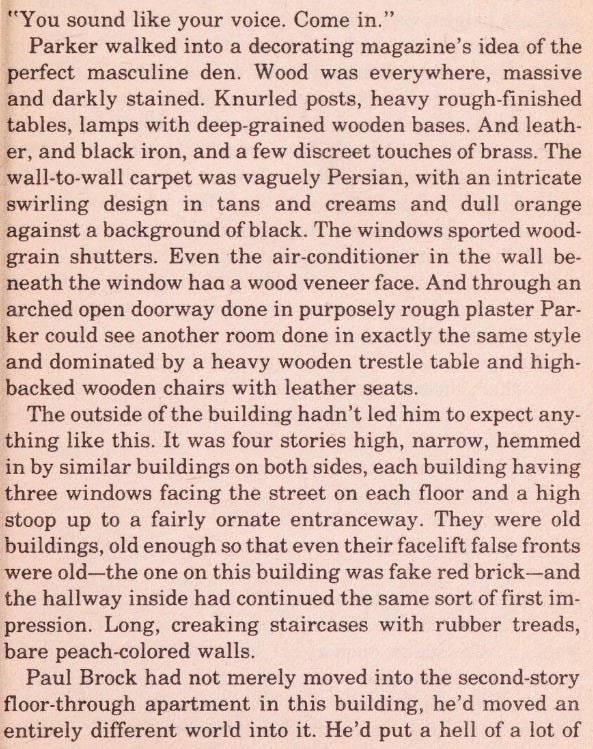
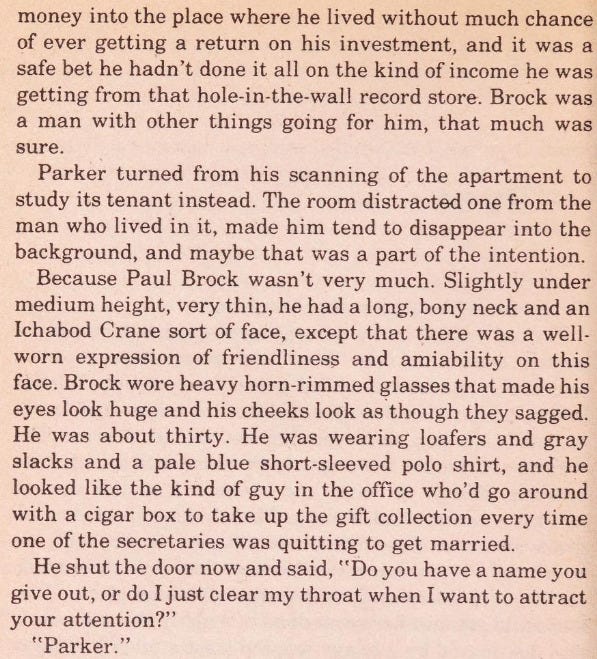
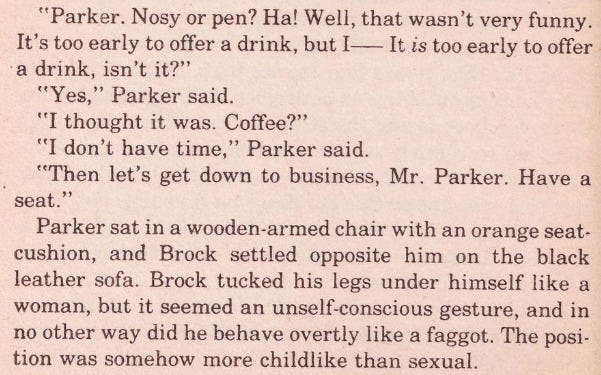
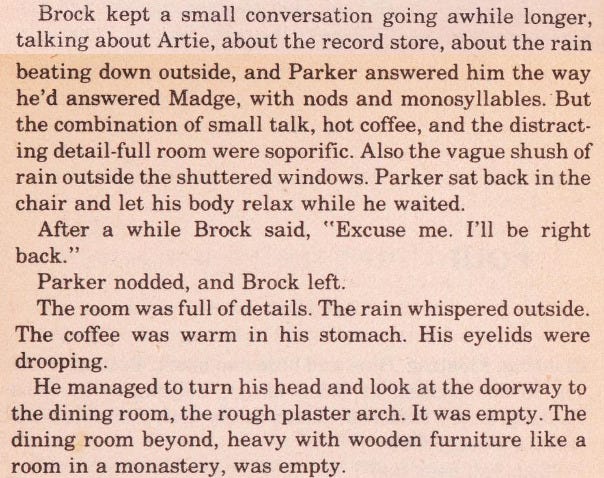
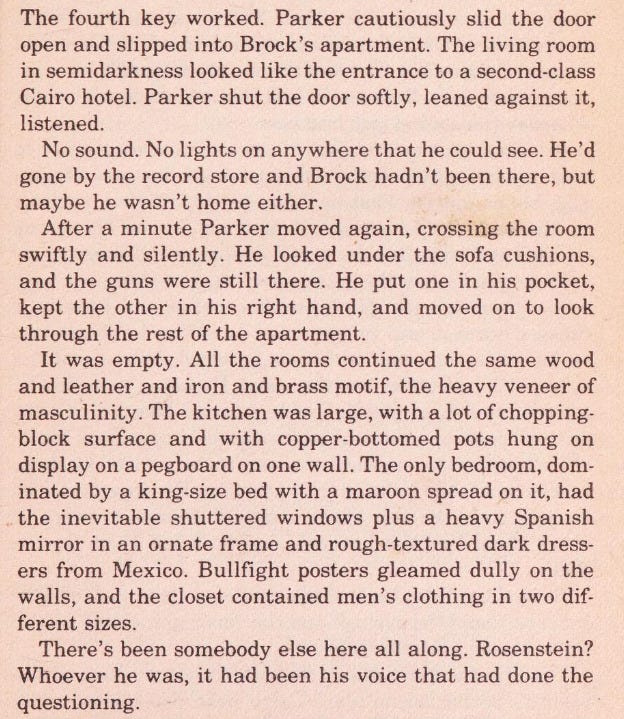
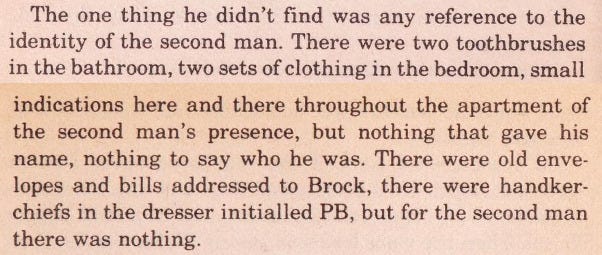
It's that description of a gay couple's living space that so clearly exemplifies Stark's layered and sympathetic approach to LGBT themes, as well as his fondness for gay culture. Brock's "veneer of masculinity" is no random choice; heavy wooden furniture had been a big thing for gay men in the 1960s indeed, just take a look at Rock Hudson's home (nicknamed "The Castle") from 1962 to his death:
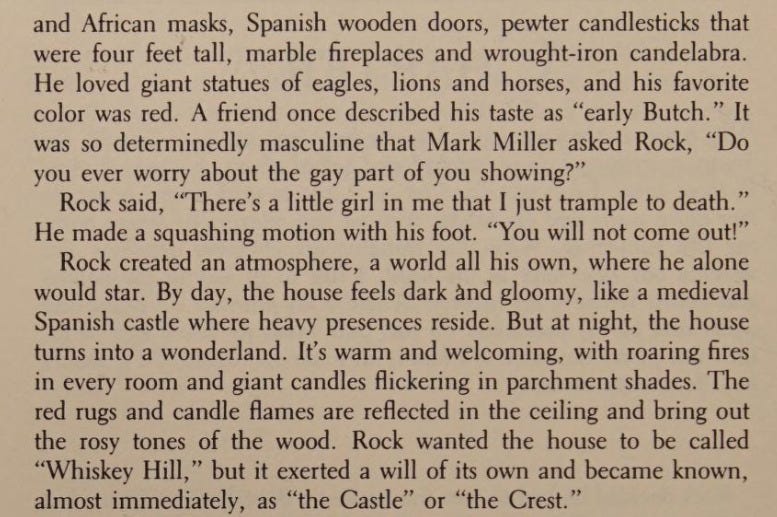

Even Liberace with his more flamboyant tastes had his Palm Springs home, nicknamed "The Cloisters" -- Spanish-style and with a heavy brass & wood motif and quite reminiscent of the "monastery" description up there in the Stark novel:

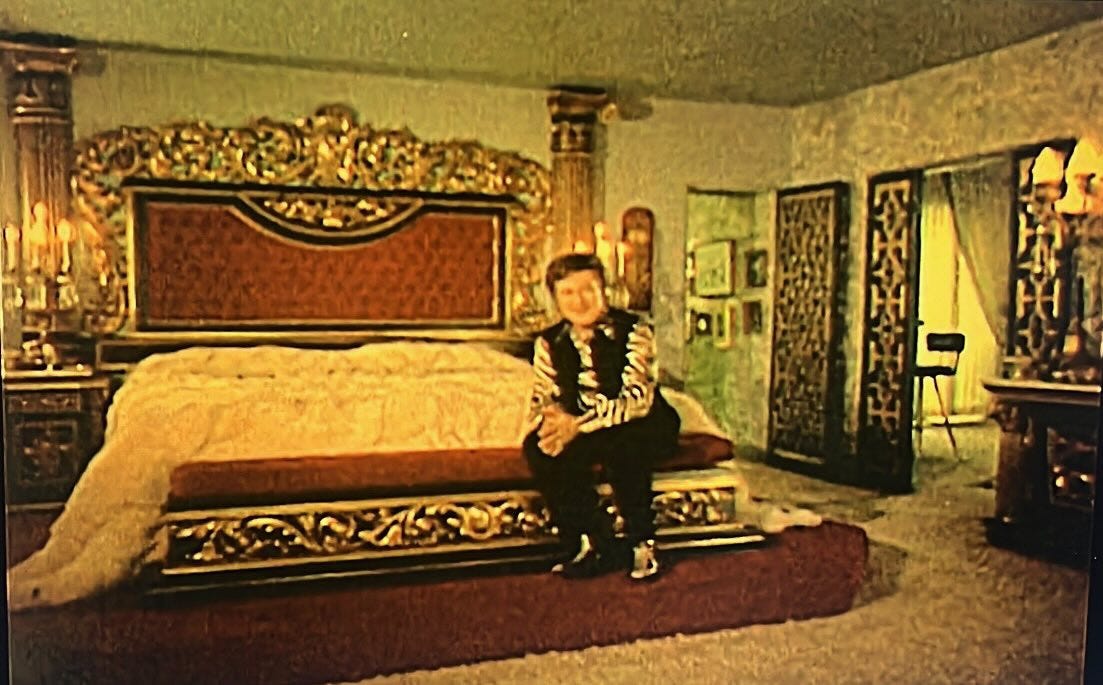
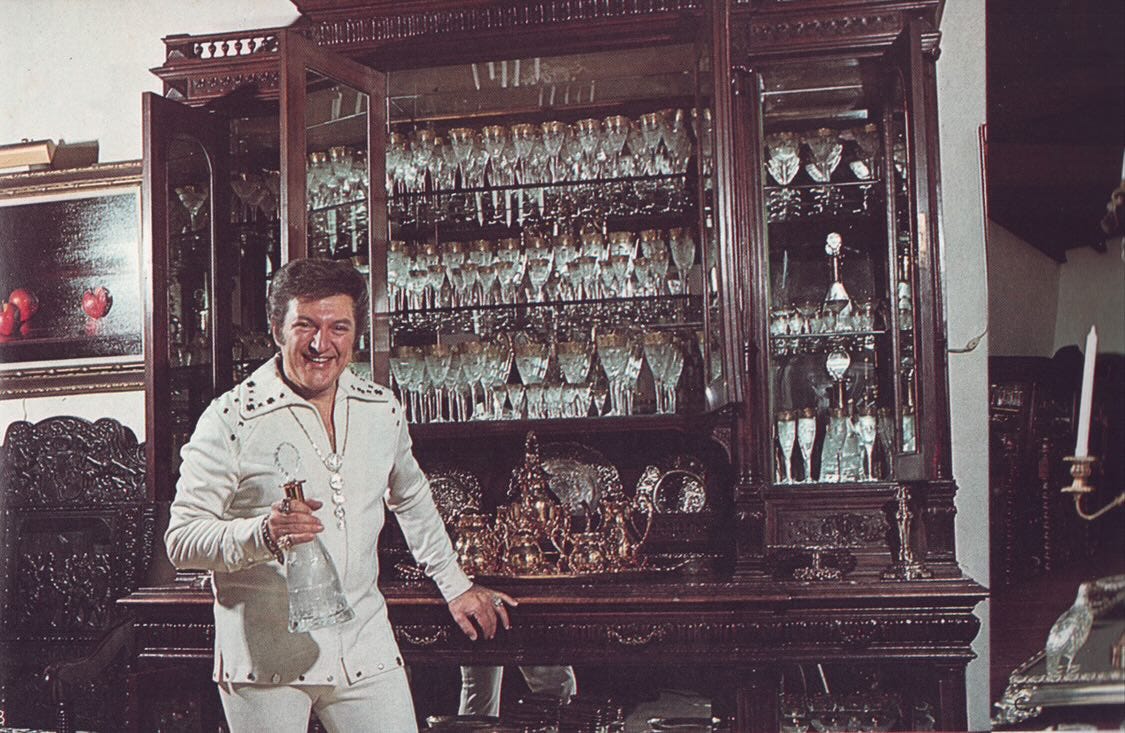
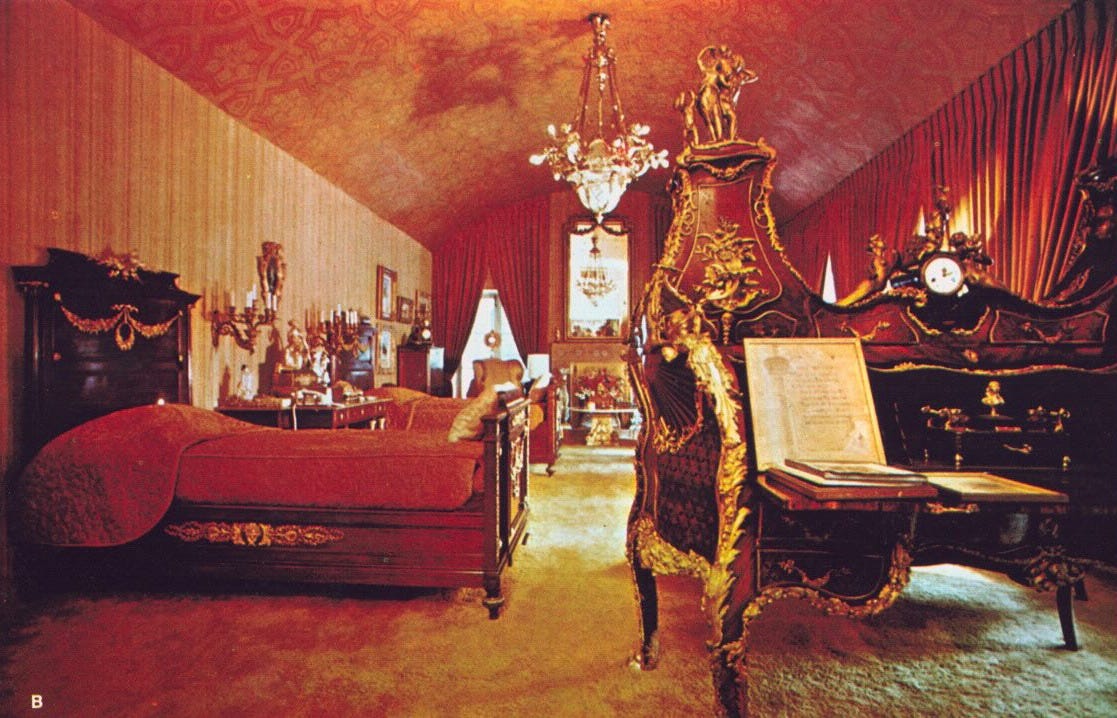
It's the existence of the second man in Brock's apartment -- the intimate details of the two toothbrushes, the clothes in the closet in two different sizes -- that's the main attraction but the seemingly personal knowledge of gay tastes at the time adds a necessary dimension to the characters & the picture being painted here. Paul Brock is no stereotype, despite navigating the world as a 'visibly' gay man.
Westlake's interest in gay culture, often explored through his protagonists visiting these private spaces, is a fundamental part of his portrayal of explicitly gay characters as sympathetic, three-dimensional and complex and one of the many aspects of his writing that set him apart from the attitudes of his contemporaries.